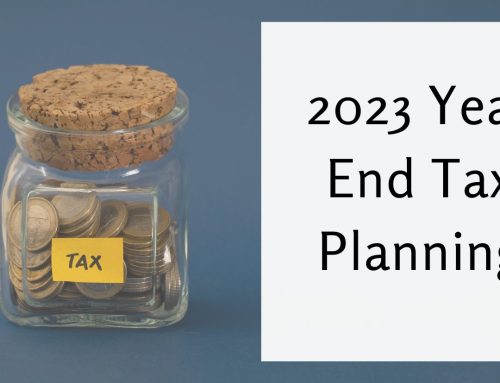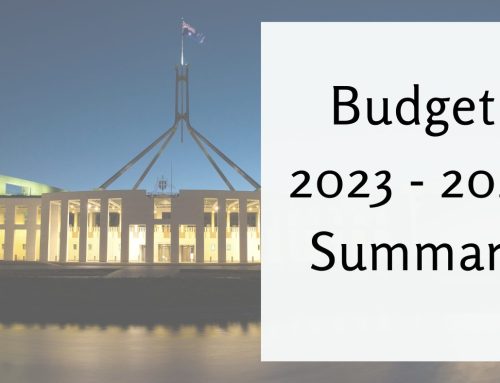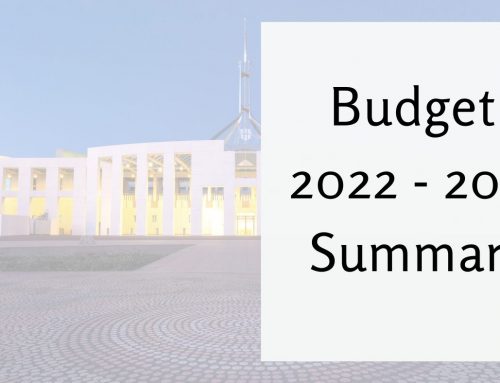Increased Turnover Threshold For Small Business Income Tax Concessions
The small business entity turnover threshold will be increased from $2m to $10m from 1 July 2016. The increased threshold means businesses with an annual turnover of less than $10m will be able to access existing small business income tax concessions including the:
- lower small business corporate tax rate (which will be reduced to 27.5% from the 2016/17 income year)
- simplified depreciation rules under Subdiv 328-D of the Income Tax Assessment Act 1997 (ITAA 1997), including the instant asset write off threshold of $20,000 available until 30 June 2017
- simplified trading stock rules under Subdiv 328-E of ITAA 1997
- option to account for GST on a cash basis and pay GST instalments as calculated by the ATO
- simplified method of paying PAYG instalments calculated by the ATO, and
- other tax concessions such as the extension of the FBT exemption for work-related portable electronic devices available from 1 April 2016 and the immediate deduction of professional expenses under s40-880 of ITAA 1997.
The increased $10m threshold will not be applicable for accessing the small business capital gains tax concessions. These concessions will remain available only for small businesses with a turnover of less than $2m or that satisfy the maximum net asset value test. The unincorporated small business tax discount (which will be increased to 8% from 1 July 2016) will however be accessible to small businesses with a turnover of less than $5m.
Unincorporated Small Business Tax Discount Increased
The unincorporated small business tax discount will be increased in phases over 10 years from the current 5% to 16%. First increasing to 8% on 1 July 2016, the discount will be available to individual taxpayers with business income from an unincorporated business that has an aggregated annual turnover of less than $5m (also an increase from the current small business turnover threshold of less than $2m). The tax discount will be increased in phases as follows:

The existing cap of $1,000 per individual for each income year will be retained. The gradual increase is intended to coincide with the staggered cuts in the corporate tax rate to 25%.
GST Reporting Requirements Simplified For Small Businesses
From 1 July 2017, all small businesses with less than $10m turnover will more easily be able to classify transactions, and prepare and lodge their business activity statements. A trial of the new simpler reporting arrangements will commence on 1 July 2016.
Other Enterprises
Staggered Cuts To The Company Tax Rate
The company tax rate will be progressively reduced to 25% over 10 years. From the 2016/17 income year, the company tax rate for businesses with an annual aggregated turnover of less than $10m will be reduced to 27.5%. This threshold to access the 27.5% tax rate will be progressively increased to ultimately have all companies at that rate in the 2023/24 income year. The thresholds for the 27.5% rate will be as follows:

The company tax rate will be further reduced progressively from the 2024/25 income year as follows:

Franking credits will be able to be distributed in line with the rate of tax paid by the company making the distribution.
Targeted Amendments To Div 7A
Targeted amendments will be made to improve the operation and administration of integrity rules for closely-held, private groups (in Div 7A of the Income Tax Assessment Act 1936) from 1 July 2018.
The amendments will include:
- a self-correction mechanism for inadvertent breaches of Div 7A
- appropriate safe-harbour rules to provide certainty
- simplified Div 7A loan arrangements, and
- a number of technical adjustments to improve the operation of Div 7A and provide greater certainty.
The amendments draw on a number of recommendations from the Board of Taxation’s post-implementation review of Div 7A.
Expanding Tax Incentives For Early-Stage Investors
In the Mid-Year Economic and Fiscal Outlook 2015/16 the government announced tax incentives applying for the 2016/17 and later income years to promote investment in early stage innovative companies, including:
- a 20% non-refundable tax offset capped at $200,000 per investor per year, and
- a capital gains tax exemption, provided investments are held for at least three years and less than 10 years.
The concessions were announced to apply to investments in companies that were incorporated during the last three income years and that are undertaking an “eligible business”, the scope of which was to be determined by the government in consultation with industry. In addition, the company could not be listed on any stock exchange and must have expenditure of less than $1m and income of less than $200,000 in the previous income year.
The government has announced that following consultation with stakeholders, the measures will be amended so that they better target investment in innovative companies that face difficulty attracting the capital and business expertise needed to succeed.
The amendments include:

Funding Arrangements For Venture Capital Investments Expanded
Funding arrangements to attract more venture capital investment will be expanded to improve access to capital and make the regimes more user-friendly.
The government has amended the Mid-Year Economic and Fiscal Outlook 2015/16 measure “National Innovation and Science Agenda — new arrangement for venture capital investment” to:

New Collective Investment Vehicles Introduced
A new tax and regulatory framework will be introduced for two new types of collective investment vehicles (CIVs).
A corporate CIV will be introduced for income years starting on or after 1 July 2017 and a limited partnership CIV will be introduced for income years starting on or after 1 July 2018.
The new CIVs will be required to meet similar eligibility criteria as managed investment trusts, such as being widely held and engaging in primarily passive investment. Investors in these new CIVs will generally be taxed as if they had invested directly.
This measure is intended to allow fund managers to offer investment products using vehicles that are commonly in use overseas.
If You Would Like Further Information Regarding Your Business Please Contact The Office 03 9629 1433





